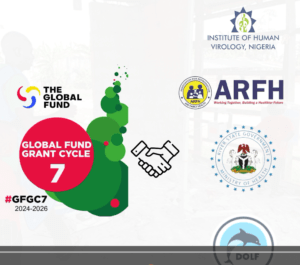The proportion of women who die in pregnancy, birth or related complications remains high in Nigeria. As Africa’s most populous country with a population of 168.8 million (NPC, 2012) and a growth rate of 3.2% per annum, Nigeria has high maternal mortality ratio (MMR) of 630 women per 100,000 live birth (UN, 2010). Some of the factors contributing to the problem are too frequent births and limited access to desired methods of contraception. In Nigeria, only 10% of the 40 million women of reproductive age are using modern contraceptives while family planning needs of 20.2% are not being met. To increase the uptake of contraceptives, and reduce the unmet needs Association for Reproductive and Family Health (ARFH) in collaboration with the Federal and State Ministries of Health (FMOH and SMOH) with support from United Nations Population Fund (UNFPA) has commenced a national training of community health extension workers (CHEWs) as part of the task-shifting policy on the provision of injectable contraceptives (DMPA and Noristerat) by CHEWS in Nigeria.
The four-year Project entitled ‘INCREASING ACCESS TO CONTRACEPTIVES THROUGH TRAINING OF CHEWS AS PART OF TASK-SHIFTING POLICY IN NIGERIA’ (INACT Project) is focused on increasing access to contraceptives through task-shifting to CHEWS and assuring enabling policy/community environment for sustainable service delivery and utilization. The involvement of CHEWs in provision of family planning services, especially injectable contraceptives had been ratified by the National Council of Health. This is being implemented in the 774 local government areas in 36 states including the federal capital territory (FCT).
 While speaking at the INACT-Project start-up meeting held on the on 9th December, 2013 in Ibadan, Oyo State, the President and CEO of ARFH Professor http://onhealthy.net/product-category/womens-health/ Oladapo A. Ladipo stated that task-shifting in the Nigerian health care delivery system is inevitable given the inequitable distribution of human resources for health. According to him, task-shifting has been on-going for 3 decades and the impact is recognized in several African countries including Malawi, Ethiopia, and Ghana. He further stated that every country has to make the best use of resources available. Also speaking at the event was the Coordinator, Reproductive Health, FMOH, Dr. Bose Adeniran. She noted that family planning had been identified as one of the quick strategy that can contribute to a significant reduction in maternal mortality and morbidity ratio. She declared that the Federal Government brought the CHEWs on board in order to promote the well-being of mothers and children as this is critical to family stability, the society and national development. She further noted that the involvement of CHEWs is very important as it provides an opportunity to take family planning services to the doorsteps of women, irrespective of where they reside in the country.
While speaking at the INACT-Project start-up meeting held on the on 9th December, 2013 in Ibadan, Oyo State, the President and CEO of ARFH Professor http://onhealthy.net/product-category/womens-health/ Oladapo A. Ladipo stated that task-shifting in the Nigerian health care delivery system is inevitable given the inequitable distribution of human resources for health. According to him, task-shifting has been on-going for 3 decades and the impact is recognized in several African countries including Malawi, Ethiopia, and Ghana. He further stated that every country has to make the best use of resources available. Also speaking at the event was the Coordinator, Reproductive Health, FMOH, Dr. Bose Adeniran. She noted that family planning had been identified as one of the quick strategy that can contribute to a significant reduction in maternal mortality and morbidity ratio. She declared that the Federal Government brought the CHEWs on board in order to promote the well-being of mothers and children as this is critical to family stability, the society and national development. She further noted that the involvement of CHEWs is very important as it provides an opportunity to take family planning services to the doorsteps of women, irrespective of where they reside in the country.
According to UNFPA’s Reproductive Health Commodity Security Analyst: Mrs Olanike Adedeji, UNPFA is supporting the project because of its belief in delivering a world where every pregnancy is wanted, every birth is safe and the potential of every person is fulfilled. Mrs. Adedeji further expressed the hope that through government’s commitment of resources and building of capacity of healthcare personnel to provide family planning services, women would be able to choose from the mix of contraception methods and have the services provided to them when needed. The participants at the start-up meetings made contributions to the implementation strategies in the context of the respective states.




